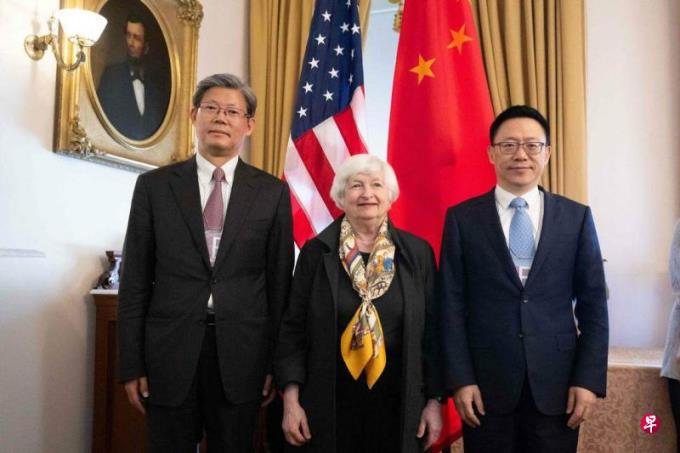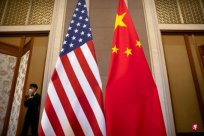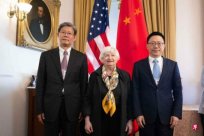
The Sino -US Economic Working Group meeting once again confronted the excess capacity of China. The United States reiterated that they were worried about China's industrial capacity overcapacity, and China concerned about the US economic and trade restrictions on China.
Scholars interviewed, The United States against China, lithium batteries and lithium batteries and lithium batteries and lithium batteries and lithium batteries and lithium batteries and lithium batteriesThe allegations of the "new three" production capacity of photovoltaic energy are designed to curb China's strategic threat in the field of science and technology and pave the way for more sanctions or restrictions on China.
According to the announcement of the Ministry of Finance on Wednesday (April 17), the Deputy Minister of Finance Liao Yan and the Deputy Minister of Finance Shang Bo, the Ministry of Finance, co -hosted on Tuesday (April 16) in Washington.EssenceThe two sides have conducted in -depth, pragmatic and constructive communication on topics such as the macroeconomic situation and balanced growth of China and the United States.
According to the US Ministry of Finance's statement, US Finance Minister Yellen met with representatives of the Economic Working Group of the two countries on the same day and had a effective dialogue on how to continue to promote bilateral relations in the fields of cooperation and differences.
The statement also pointed out that the US delegation continues to do the non-market behavior of China and Excessive industrial capacity means concerned .
Chinese representatives also expressed concerns about the US economic and trade restrictions on China and further responded to capacity issues.The statement did not mention the detailed content of the response.
According to Reuters, the Chinese embassy spokesman Liu Pengyu responded to the allegations of excess capacity after the meeting, saying that some export growth in China was based on "international division of labor and market demand".
He said: "Politicalization of overcapacity, linking economic problems with security issues, violating economic laws, and harming their own industries and global economic stability. China believes that all parties need to respect fair competition, open cooperation and other market economies"Basic Principles"
Gu Qingyang, an associate professor of the School of Public Policy of the National University of Singapore's National University, studied and judged in an interview with Lianhe Morning Post. The problem of overcapacity in China's industrial capacity has become a new strategy in the United States in the Sino -US game.Avoid the United States from losing its leadership and international influence in this field.
He said: "China has always existed in the problem of overcapacity of steel and cement, but the United States has never mentioned because this does not constitute a strategic threat to the United States. But now it is different. The" new three "exported by China symbolizes the present today.The main products of high -tech have a large share of global trade.
Chen Bo, a specially -appointed researcher at the Chinese economist and a special researcher at Liaoning University, believes that there is no rigorous basis for the United States to accuse the overcapacity of China's industrial capacity in academic.China/Story20240407-3304146 "R = NOFOLLOW TARGET = _blank> and the United States accusations are more of political considerations , and pave the way for more sanctions or restrictions on China.
He said: "This year is the year of the United States election. The United States is now in a political atmosphere in which the atmosphere of strengthening the geopolitical struggle with China. Therefore, in a political correct atmosphere, the United States can ignore rules and even facts."
In Chen Bo's view, the United States will continue to confront China in the "new three" capacity of overcapacity, but there are not many practical actions that can make China.
He explained that the United States has imposed severe sanctions on Chinese products on photovoltaic energy products, and there are not many new energy vehicles exported to the United States.Therefore, the sanctions on these two types of new energy products will not have much impact on China's international sales.
He added that if the United States sanctions the lithium battery industry with industrial advantages in China, it will greatly increase the manufacturing costs of the upstream industry in the United States, leading to a higher sales price in the downstream.Therefore, the US sanctions are likely to eventually cause the situation of "hurting the enemy a thousand, self -damage to 800" situation.




